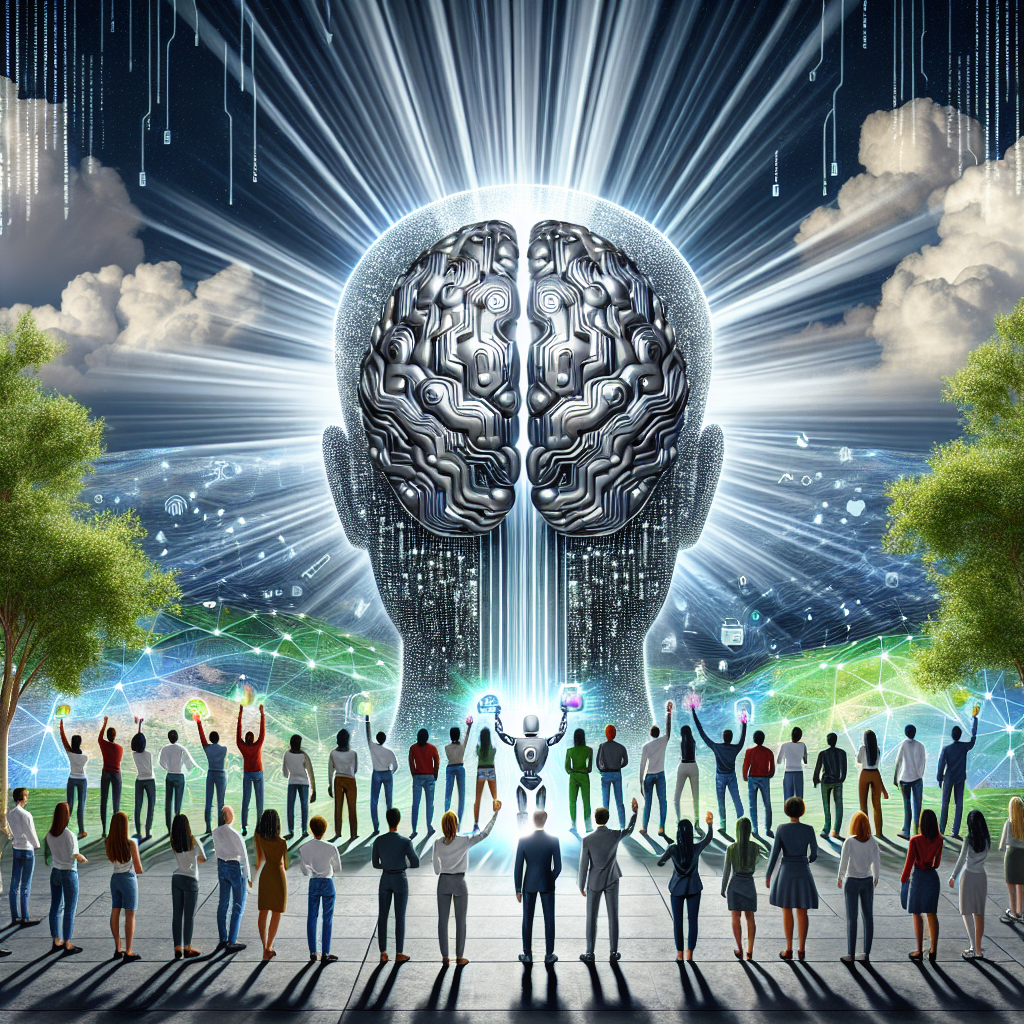Artificial Intelligence (AI) has made significant advancements in recent years, transforming industries and revolutionizing the way we live and work. From self-driving cars to virtual assistants, AI has the potential to make our lives easier and more efficient. However, as AI continues to evolve, questions have arisen about its social impact and ethical implications. In this article, we will explore the concept of AI and social responsibility, and how businesses and individuals can use AI to give back to society.
What is AI and Social Responsibility?
AI is the simulation of human intelligence processes by machines, especially computer systems. It involves the development of algorithms that enable machines to perform tasks that would normally require human intelligence, such as visual perception, speech recognition, decision-making, and language translation. AI has the potential to bring about transformative changes in various sectors, including healthcare, finance, education, and transportation.
Social responsibility, on the other hand, refers to the ethical obligations that individuals and organizations have towards society. It involves making decisions that benefit not only the bottom line but also the well-being of people and the planet. Social responsibility encompasses a wide range of initiatives, including charitable giving, environmental sustainability, and ethical business practices.
AI and social responsibility intersect in several ways. On one hand, AI has the potential to address some of the world’s most pressing social challenges, such as poverty, healthcare access, and education. AI-powered technologies can help improve access to healthcare services in underserved communities, enhance educational opportunities for marginalized populations, and support environmental conservation efforts.
On the other hand, AI also raises concerns about its potential negative impacts on society. For example, there are concerns about AI’s impact on jobs and the economy, as automation and AI-powered technologies may lead to job displacement and income inequality. There are also ethical concerns about the use of AI in decision-making processes, such as in criminal justice, where biases in AI algorithms can lead to discriminatory outcomes.
Given these complex dynamics, it is essential for businesses and individuals to consider the social implications of AI and take proactive steps to ensure that AI is used responsibly and ethically. This includes incorporating social responsibility principles into AI development and deployment, such as ensuring transparency, accountability, and fairness in AI systems.
How can AI be used for social responsibility?
AI has the potential to revolutionize social responsibility efforts by enabling more efficient and effective solutions to address societal challenges. Here are some ways in which AI can be used for social responsibility:
1. Healthcare: AI-powered technologies can help improve access to healthcare services and enhance patient outcomes. For example, AI can be used to analyze medical images and diagnose diseases more accurately and quickly than human doctors. AI can also help personalize treatment plans for patients based on their unique genetic makeup and medical history.
2. Education: AI can enhance educational opportunities for students by providing personalized learning experiences and support. AI-powered tutoring systems can adapt to students’ individual learning styles and pace, helping them achieve better academic outcomes. AI can also help teachers identify students who may need additional support and intervention.
3. Environmental sustainability: AI can help address environmental challenges by analyzing large amounts of data to identify patterns and trends. For example, AI can be used to monitor and predict natural disasters, such as wildfires and hurricanes, enabling early response and mitigation efforts. AI can also help optimize energy usage and reduce waste in industries such as manufacturing and transportation.
4. Social impact investing: AI can help investors make more informed decisions about where to allocate their capital for social impact. AI-powered algorithms can analyze data on companies’ environmental, social, and governance (ESG) practices to identify high-impact investment opportunities. This can help drive positive social change while generating financial returns for investors.
5. Disaster response: AI can help improve disaster response efforts by analyzing real-time data to identify areas that are most vulnerable to natural disasters. AI-powered drones can be used to assess damage and deliver aid to affected areas quickly and efficiently. AI can also help coordinate emergency response efforts and allocate resources more effectively.
FAQs
Q: What are some ethical considerations when using AI for social responsibility?
A: When using AI for social responsibility, it is essential to consider ethical considerations such as transparency, accountability, and fairness. AI systems should be transparent in how they make decisions and be held accountable for their outcomes. Bias in AI algorithms should be identified and mitigated to ensure fair and equitable results.
Q: How can businesses incorporate social responsibility into their AI initiatives?
A: Businesses can incorporate social responsibility into their AI initiatives by aligning their AI projects with their corporate social responsibility goals. This includes investing in projects that have a positive social impact, such as improving access to healthcare or education. Businesses should also engage with stakeholders, including employees, customers, and communities, to understand their social needs and priorities.
Q: What are some examples of AI-powered social responsibility initiatives?
A: Some examples of AI-powered social responsibility initiatives include:
– IBM’s AI-powered Project Debater, which helps facilitate debates on social and ethical issues.
– Google’s DeepMind Health, which uses AI to improve patient outcomes in healthcare.
– Microsoft’s AI for Earth, which supports environmental sustainability efforts through AI-powered solutions.
In conclusion, AI has the potential to revolutionize social responsibility efforts by enabling more efficient and effective solutions to address societal challenges. By incorporating social responsibility principles into AI development and deployment, businesses and individuals can ensure that AI is used responsibly and ethically to benefit society as a whole. With careful consideration of ethical considerations and proactive steps to address potential risks, AI can be a powerful tool for giving back and driving positive social change.

